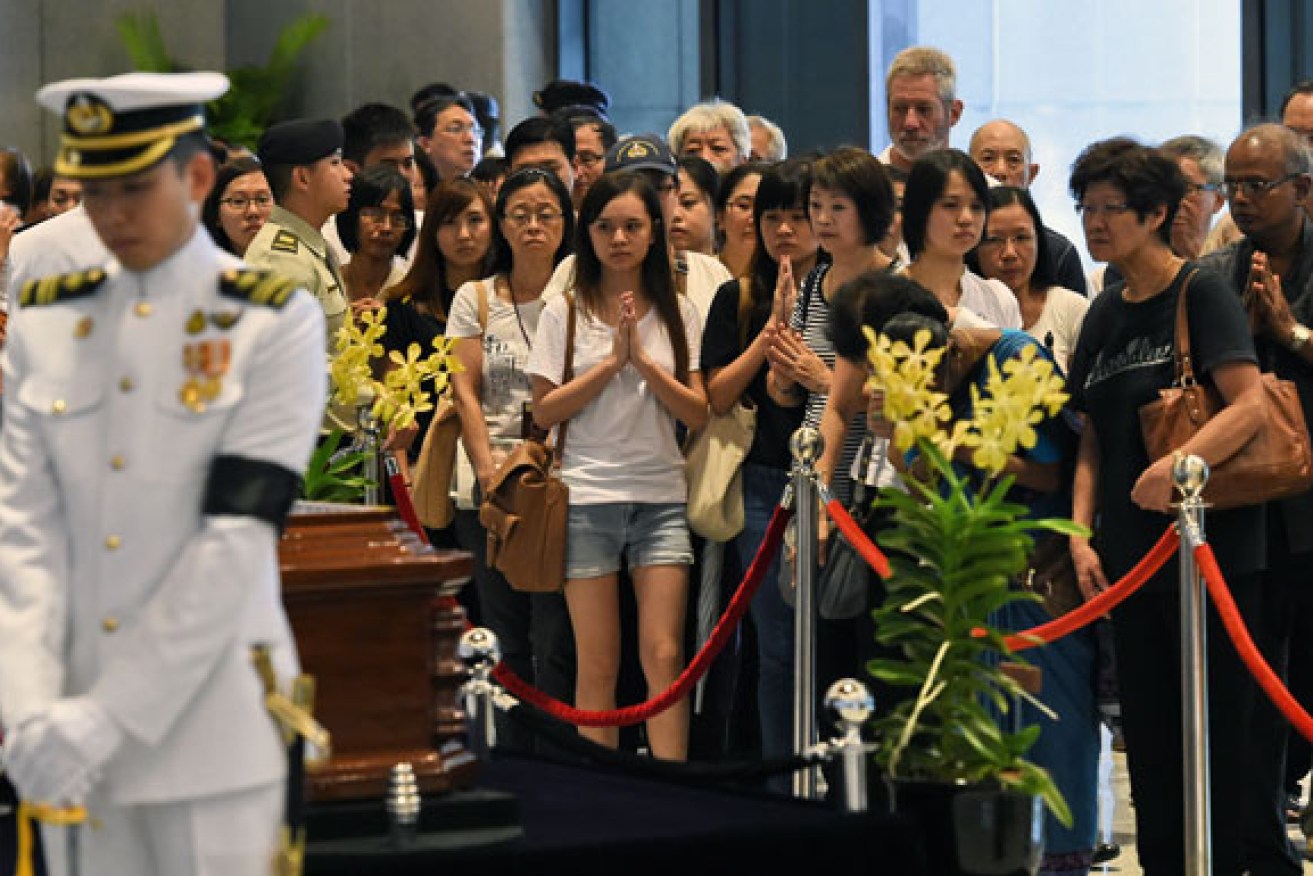Thousands farewell Singapore’s founding leader

Thousands of people have braved heavy rains to line Singapore’s streets for a final farewell to founding leader Lee Kuan Yew, who will receive a rare 21-gun salute before a state funeral attended by world dignitaries.
Officials said more than 450,000 people had paid their last respects to the 91-year-old, who served as prime minister for 31 years, before his public wake ended in parliament on Saturday night.
“It has been a deeply moving experience,” his son, prime minister Lee Hsien Loong, said in a Facebook post thanking the public for honouring the former leader, who died Monday after seven weeks in hospital.
• BBC ‘death threats’ after Jeremy Clarkson axed
• Plague-era skeletons show off London history
Prime Minister Tony Abbott attended the funeral, along with the leaders of Japan, South Korea, India, Indonesia, Malaysia and Brunei.
Former US president Bill Clinton led the American delegation that also included former secretary of state Henry Kissinger, a close friend of Lee.
Singapore’s former colonial ruler Britain was represented by the leader of the House of Commons, William Hague, who earlier served as foreign secretary.
Singapore stands together to remember first leader
Families turned up early to catch choice spots along the 15-kilometre procession route from parliament to the National University of Singapore, where the state funeral was held.
“We are here today as a family to witness this historic moment. As Singaporeans we may have our differences, but when it comes to a crunch we stand together. That is what Singapore is about and that is Mr Lee’s legacy,” said teacher Joel Lim, 35.

Mourners pay their respects to Singapore’s late former prime minister Lee Kuan Yew where he lies in state at Parliament House in Singapore. Photo: Getty
Lee became Singapore’s first prime minister in 1959, when the island gained self-rule from colonial ruler Britain.
Singapore became a republic in 1965 after a brief and stormy union with Malaysia.
Lee stepped down in 1990 in favour of his deputy Goh Chok Tong, who in turn was succeeded by Lee’s son.
Lee’s dark brown wooden casket, draped in the red-and-white Singapore flag, left parliament in a glass case atop a gun carriage pulled by an open-topped ceremonial Land Rover.
It passed landmarks associated with the British-trained lawyer’s 60-year political career
During the state funeral, sirens sounded for the nation to observe a minute of silence for their former leader.
Lee is revered by Singaporeans for his economic and social legacy but criticised by rights groups for sidelining political opponents, muzzling the press and clamping down on civil liberties.
Singapore has one of the highest GDP per capita incomes in the world at $56,284 in 2014, up from a mere $516 when it gained independence.
Ninety per cent of Singaporeans own their homes, thanks to a public housing scheme launched by Lee, and the country enjoys one of the lowest crime rates in the world.
Its highly paid civil service is consistently ranked among the world’s most honest.
But development has created fresh problems, topped by a rapidly ageing population, making Singapore dependent on foreigners who now make up nearly 40 per cent of its 5.5 million population.








